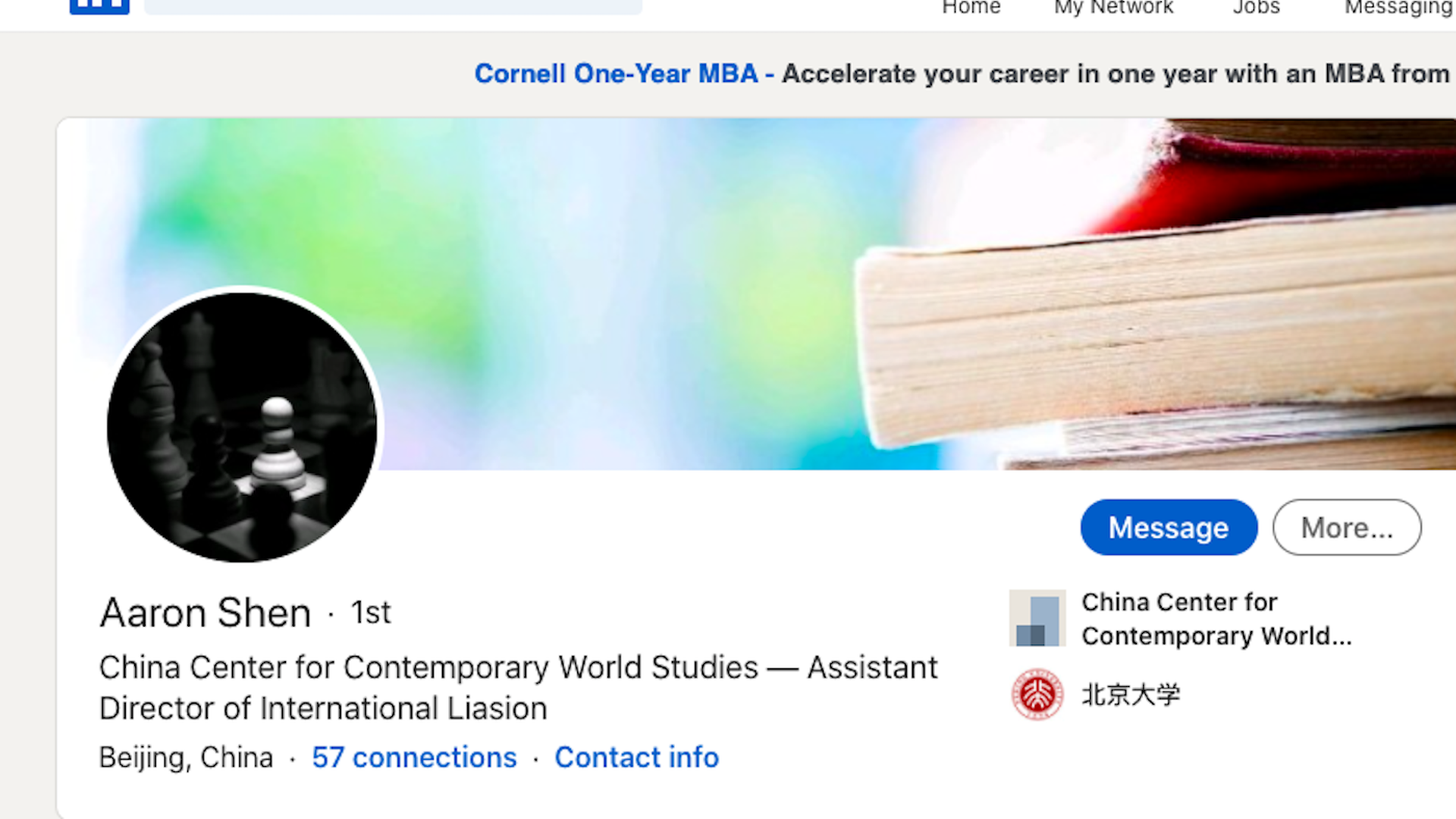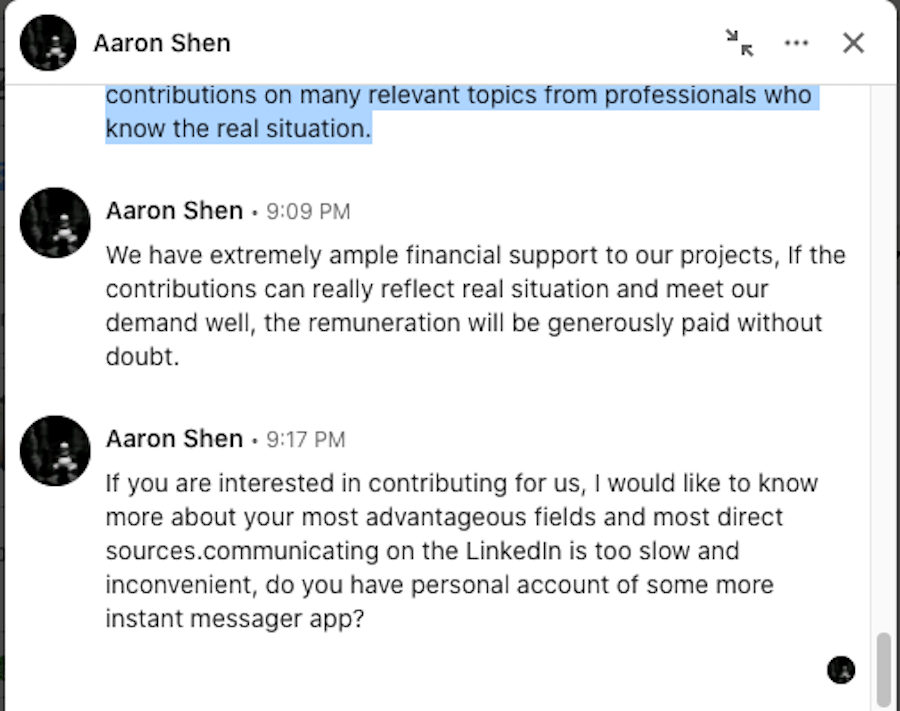Bethany Allen-Ebrahimian

A person on LinkedIn claiming to work for a think tank run by a high-ranking Chinese Communist Party department recently offered financial compensation for the names of my sources and for reports about the incoming Biden's administration's views on China.
Why it matters: It was a surprisingly clumsy attempt to gain insider information about the U.S. government's China policy, suggesting that amid a chill in U.S.-China relations and a global pandemic, it's gotten harder for people in Beijing to know what's happening in Washington.
Details: A couple of weeks ago, someone named Aaron Shen (沈岳 in Chinese) sent me a request to connect on LinkedIn. I accepted after I saw he claimed to be the assistant director of international liaison at the China Center for Contemporary World Studies — the in-house think tank of the International Department of the Chinese Communist Party's Central Committee (IDCPC).
The IDCPC functions as the foreign affairs wing of the party.
The IDCPC's job is "to win support for China among foreign political parties," The Economist's Gady Epstein recently wrote. "As a party outfit it has considerable authority. It works closely with the foreign ministry and swaps personnel with it."
Shen and I started chatting. We had both been students at Peking University in 2008. I asked him where he was from (Hubei Province). I told him I was from Texas ("Oh right! Cowboy is a very famous cultural symbol of Texas," he replied, referring to the hat-wearing cow-wrangler, not the football team).
But then something weird happened.
He asked how I was able to gather "first-hand information" during the pandemic.
He said he was "troubled by lacking channels and sources to gather the first-hand in-depth information we need for our research and consulting work."
He said they placed a lot of value on "information sources" with "authority" that could "reflect true situation and trends of the U.S.-China relations."
Shen never asked for our messages to be off the record.
The pitch: "If the contributions can really reflect real situation and meet our demand well, the remuneration will be generously paid without doubt," Shen messaged me, after asking that we switch to the encrypted messaging app Signal and offering to pay me for my sources.
Shen told me he wanted know "the policy standpoints and considerations on the issue of punishing and blocking certain entities and individuals of China by the means of imposing sanctions, enforcing long-arm jurisdiction, putting pressures on allies, and so on."
Of course, I never sent Shen the names of any real people or any reports, I never messaged with him on Signal, and I never accepted any form of compensation from him. A screenshot from the conversation with Aaron Shen on LinkedIn. Image source: LinkedIn
A screenshot from the conversation with Aaron Shen on LinkedIn. Image source: LinkedIn
 A screenshot from the conversation with Aaron Shen on LinkedIn. Image source: LinkedIn
A screenshot from the conversation with Aaron Shen on LinkedIn. Image source: LinkedInWhat they're saying: The China Center for Contemporary World Studies did not respond to an emailed request for comment. Shen deleted his LinkedIn account after I sent a formal request for comment and questions about his identity and intentions to his email address and to his LinkedIn inbox.
A search of the think tank's website for "Aaron Shen" and "沈岳" did not yield any results. Their website does not appear to include an exhaustive list of staff names.
Between the lines: This appears to be some kind of Chinese party-state effort to collect information about the inner workings of America's China policy process, though the person behind the LinkedIn account could have been working for one of China's intelligence agencies, and simply using the IDCPC think tank as cover.
This attempt was "surprising" and even "brazen," said Nadège Rolland, a senior fellow at the National Bureau of Asian Research and author of a recent report about how think tanks in China serve as conduits for authoritarian influence.
It may indicate China's party-state is having a hard time finding out what is happening behind the scenes in Washington, both due to worsening U.S.-China ties and because of travel restrictions amid the pandemic, said Rolland.
A little bit of fun: After Shen offered to pay me for reports written with input from my sources, I told him I had an imminent meeting with a "former intelligence director" (an important-sounding but non-existent position) named "Krustofsky" — the last name of Krusty the Clown, a character from the Simpsons.
He didn't seemed to catch on. His final message to me, before I sent him a formal media inquiry with questions for this article, was, "How about your meeting with Krustofsky, was there anything interesting?"
The bottom line: This was a remarkably clumsy attempt to gather information.
"From the outside, it’s easy to feel that the party-state is really professional at what they are doing," said Rolland. "But actually they may not be."
No comments:
Post a Comment